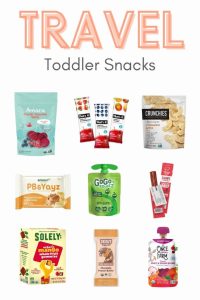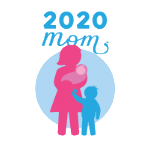Common Nutritional Mistakes Parents Make in the First 6 months
Are you a new mama? Nurturing that tiny little human , who is thriving by your efforts, but you are a little confused !
Dear Mama, It’s completely natural.
The first six months with your baby are full of love, learning, and lots of questions.
As your baby grows, many of you start thinking —
“What should I feed next?”
“When should I start?”
“How do I know what’s right?”
It’s completely normal to feel excited and overwhelmed. Most parents try different things based on advice from friends, family, or what they see online. But without the right guidance, it often turns into guesswork.
Please know — it’s not your fault. You want the best for your baby, and that’s what truly matters.
Before we talk about solids, let’s pause and make sure your foundation is strong —
Are you clear about exclusive breastfeeding or pumping?
Do you feel confident about your baby’s current nutrition?
Let’s gently reinforce what really matters in these first 6 months — so you feel calm, supported, and ready for the next step.
-
Exclusive Breastfeeding
It means exclusive breastfeeding, no other food or drink, not even water, except breastmilk(including expressed milk) for the last 6 months of life. And unrestricted exclusive breastfeeding results in ample milk production

“Breastfeeding Fact
Breast Milk is the ideal food for infants. However, nearly 2 out of 3 infants exclusively breastfed for the recommended 6 months. Insert Photo”
Now let’s understand something very important —
How does a baby who’s born with natural hunger cues slowly start rejecting food, becoming fussy, or not eating enough for healthy growth?
It doesn’t happen overnight.
It begins much earlier — sometimes in the first six months itself — when small mistakes go unnoticed.
These are real, common mistakes many well-meaning parents make (unknowingly), which can later affect their baby’s feeding journey.
-
Over-relying on milk
Many mothers lovingly continue to feed milk whenever the baby asks — thinking it’s enough.
But after 6 months, milk alone is no longer enough to meet your baby’s growing nutritional needs.

When babies don’t get introduced to enough variety in solid foods early on, they:
- Start refusing new tastes
- Rely only on milk for comfort
- Miss out on key nutrients
- Begin to show slow weight gain or poor height growth
- May become fussy or picky eaters later
Your baby now needs nutrient-rich meals with:
- Iron
- Zinc
- Calcium
- Vitamin D
- Healthy fats and proteins
These are essential for their brain development, immunity, height, and weight.
So remember — milk is still important, but it’s time to build meals, not just feeds.
Let’s help your baby explore, enjoy, and grow with food.
-
Not introducing enough texture early
One common mistake is sticking to only plain, watery purees for too long.
But babies are ready to explore more than we think — and early exposure to different textures, flavors, and foods builds healthy eating habits for life.

After a few weeks of single-ingredient purees, start:
- Offering soft-cooked fruits like peach, nectarine, and blueberry
- Introducing vegetables like beetroot, pumpkin, broccoli
- Mixing up new combinations for taste and fun
Add protein-rich foods like:
- Masoor dal, moong dal, chickpeas
- Soft chicken or egg yolk (as per age readiness)
Boost flavor and nutrition with:
- A few drops of ghee or olive oil
- A pinch of mild spices like jeera, hing, or cinnamon
- A little fresh coriander, mint, or curry leaves finely chopped
These gentle additions help develop your baby’s taste buds, prevent fussiness, and support better growth.
Babies who learn to enjoy different textures and flavors early are more likely to become adventurous and happy eaters. Let feeding be a beautiful journey of discovery — not just nutrition.
Read more : https://www.deepti-arora.com/challenges-while-starting-solids/
-
Too much packaged food
Packaged baby food might seem easy and quick — especially on busy days.
But here’s the truth: what’s convenient isn’t always nutritious.
Most commercially made foods:
- Lack the rich taste and nutrients of homemade meals
- Often contain hidden sugars, salt, preservatives
- May include common allergens or ingredients not suitable for your baby’s age
Even snacks that claim to be “baby-friendly” can lead to:
- Poor eating habits
- Increased fussiness
- Lower interest in fresh, natural foods

What can you do instead?
Say YES to:
1.Fresh homemade purees, porridges, and soft finger foods
2.Seasonal fruits, veggies, dals, and grains
3.Small additions of ghee, herbs, and mild spices to build real taste.
Remember, your baby is forming their food preferences now.
Offer them the gift of real, clean, and nourishing food from the beginning.
-
Ignoring signs of intolerance/allergy
Sometimes, in the excitement of starting solids, parents may miss early signs that a baby isn’t tolerating a certain food well. But spotting these signs early can help prevent discomfort and serious reactions.
The best way to reduce allergy risk?
Begin with exclusive breastfeeding for the first 6 months — it supports your baby’s immunity and gut health.
Common allergy signs in babies may include:
- Rashes (especially around the mouth)
- Eczema flare-ups
- Stomach pain or colic
- Gas, vomiting, or diarrhea
- Hives or flushed skin
- Swelling of lips, tongue, or face
- Wheezing or trouble breathing (this is an emergency — seek help immediately)

Foods that may cause early reactions include:
- Kiwi (can cause rash around the mouth)
- Eggs (can lead to tummy ache or body rashes)
- Cow’s milk (often causes gas, colic, or bloating)
What to do:
If you notice any of these symptoms after feeding a new food:
1. Stop giving it immediately
2.Talk to your pediatrician before reintroducing or trying again
Your attentiveness helps your baby stay safe, happy, and healthy on their food journey.
Read more : https://www.deepti-arora.com/signs-of-food-allergies-in-babies-and-how-to-handle-them/
-
Unrealistic portion expectations
One of the biggest worries parents have after starting solids is:
“Is my baby eating enough?”
Here’s the truth — every baby is different.
Some start eating more within 2 weeks of weaning, others may take up to 8 weeks. And that’s okay.

Instead of measuring portion sizes or comparing with others, try these gentle signs:
1.If your baby’s poop is still yellowish, it means milk is still the main food and solids are just for exploration.
2. If the poop turns brown, it means your baby is now eating — real food is going in!
Other good signs your baby is eating well:
- She opens her mouth happily when offered food
- Reaches out for more
- Sucks on her fists or shows signs of hunger even after finishing
There are no strict portion rules — just follow your baby’s cues and allow her to lead the way. Trust the process.
I hope this gentle guidance awakens both your baby’s taste buds and your own confidence, so mealtimes become joyful, nourishing, and full of love.
If you feel ready to raise a happy, healthy child — emotionally and nutritionally strong — I invite you to explore my unique programs for babies 6 months and up.
Baby Nutritionist in Gurugram | 12+ Years Experience in Infant Nutrition | Deepti
I’m certain it will bring a smile to your heart — and deepen our connection as you walk this beautiful journey of parenthood.
With love,
Deepti







